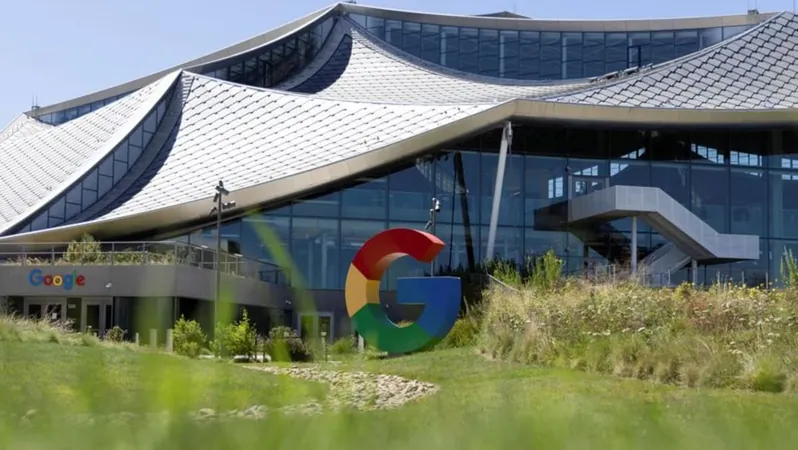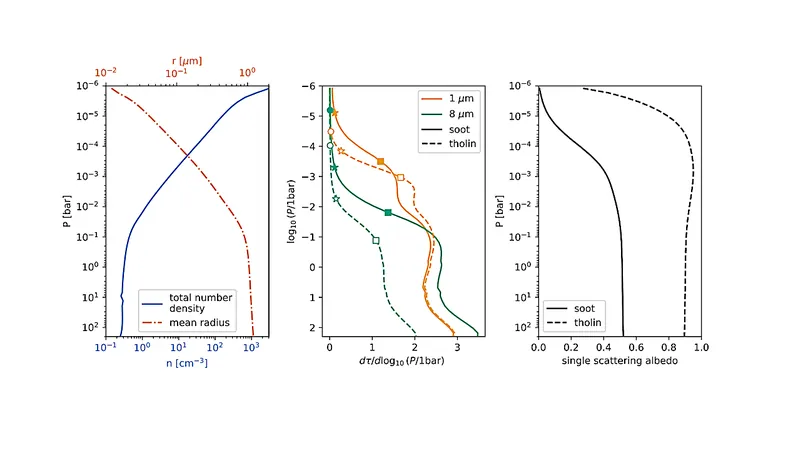
Unveiling the $32 Billion Google-Wiz Deal: A Game Changer for Tech?
2025-03-19
Author: John Tan
In a landmark move that has sent shockwaves through the tech industry, Google has successfully acquired Israeli cybersecurity firm Wiz for an astonishing $32 billion.
This dramatic turnaround comes less than a year after initial talks fell apart, highlighting the shifting landscape of corporate negotiations in the wake of political changes in the U.S.
Timing is Everything: Trump’s Presidency Influences the Deal
Shortly after Donald Trump's inauguration in January, negotiations between Google and Wiz intensified.
The tech giant sweetened its previous offer, which had been $23 billion, and significantly increased the breakup fee to over $3.2 billion.
This fee serves as a safeguard for Wiz if the deal fails due to regulatory issues, a concern that loomed large in the minds of Wiz’s executives.
Insiders revealed that the appointment of key officials in Trump’s administration, known for their more lenient stance on antitrust matters, played a crucial role in bolstering confidence among Wiz executives.
With the change in leadership, the environment for deal approvals seemed more favorable.
Why This Acquisition Could Redefine Market Dynamics
Google's revised offer places Wiz’s valuation at a striking 39% higher than their original bid, reflecting the startup's impressive annual revenue growth of 70% and an estimated $700 million in annualized revenue.
This acquisition is indicative of the intense competition in the tech sector, where cybersecurity has become a top priority for major companies amid increasing cyber threats.
As corporate mergers and acquisitions face heightened scrutiny from regulators, Google's willingness to offer a substantial breakup fee signals its commitment to this strategic acquisition.
Historically, such high fees have not been the norm; typical breakup fees for deals of this magnitude range between 4% to 7% of the deal's total value.
Navigating Regulatory Terrain Post-Deal
In a climate where companies like Adobe have seen their multibillion-dollar deals thwarted by antitrust concerns, it remains uncertain if Google had preemptively engaged with U.S. antitrust authorities prior to finalizing the acquisition.
It’s a tactic that has its advocates; for example, Tempur Sealy sought out approval from the FTC before proceeding with a $4 billion purchase.
Despite the regulatory pressure, the fortuitous timing of the deal under a new administration, which some insiders believe will be less hostile toward large tech acquisitions, may have been pivotal.
The appointments of officials like Andrew Ferguson and Gail Slater to key governmental positions have been interpreted as a signal that significant tech deals could potentially face fewer hurdles going forward.
Conclusion: The Future of Google and Wiz
As Google positions itself to further dominate the cybersecurity space through this strategic acquisition, questions loom about the broader implications for the tech landscape.
Will this deal set a precedent for future tech acquisitions? How will it influence competition within the cybersecurity market?
While Google and Wiz have yet to comment publicly, industry watchers remain keenly interested in the next steps.
As the dust settles, what is clear is that this monumental acquisition may herald a new era of consolidation in the tech giant's quest for robust cybersecurity capabilities.
Stay tuned as we dive deeper into the implications of this seismic shift in the tech industry!


 Brasil (PT)
Brasil (PT)
 Canada (EN)
Canada (EN)
 Chile (ES)
Chile (ES)
 Česko (CS)
Česko (CS)
 대한민국 (KO)
대한민국 (KO)
 España (ES)
España (ES)
 France (FR)
France (FR)
 Hong Kong (EN)
Hong Kong (EN)
 Italia (IT)
Italia (IT)
 日本 (JA)
日本 (JA)
 Magyarország (HU)
Magyarország (HU)
 Norge (NO)
Norge (NO)
 Polska (PL)
Polska (PL)
 Schweiz (DE)
Schweiz (DE)
 Singapore (EN)
Singapore (EN)
 Sverige (SV)
Sverige (SV)
 Suomi (FI)
Suomi (FI)
 Türkiye (TR)
Türkiye (TR)
 الإمارات العربية المتحدة (AR)
الإمارات العربية المتحدة (AR)